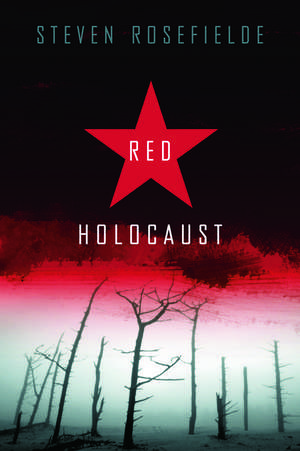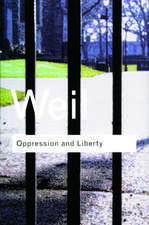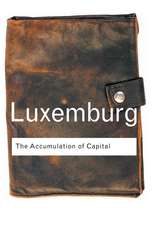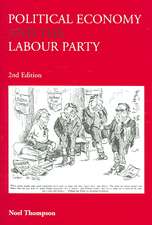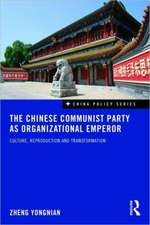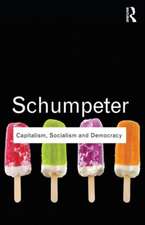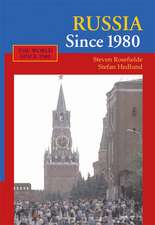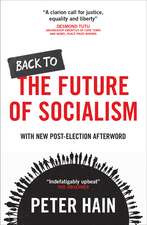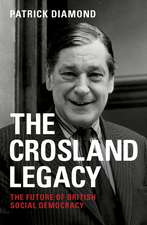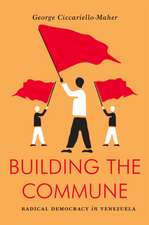Red Holocaust
Autor Steven Rosefieldeen Limba Engleză Paperback – 2 dec 2009
As in other studies, blame is ascribed to political, ideological and personal causes, but special emphasis is given to internal contradictions in Marx's utopian model as well as Stalinist and post-Stalinist transition systems concocted to realize communist ends. This faulty economic engineering forms a bridge to the larger issue of communism's historical failure.
The book includes:
- a comprehensive study of the transcommunist holocaust
- a judicial assessment of holocaust culpability and special pleadings
- an obituary for Stalinism everywhere except North Korea, and a death watch for contemporary communism in China, Vietnam, Laos, Cambodia, North Korea, Cuba and Nepal
- a comparative assessment of totalitarian high crimes against humanity
- a call for memory as a defense against recurrent economic, racial and ethnic holocausts
The book will be useful to undergraduate and higher level students interested in Russian history, Stalism, communism, North and South Korean economic performance and international affairs.
Steven Rosefielde is a Professor of Economics at the University of North Carolina, Chapel Hill and a member of the Russian Academy of Natural Sciences.
| Toate formatele și edițiile | Preț | Express |
|---|---|---|
| Paperback (1) | 452.73 lei 6-8 săpt. | |
| Taylor & Francis – 2 dec 2009 | 452.73 lei 6-8 săpt. | |
| Hardback (1) | 1444.61 lei 6-8 săpt. | |
| Taylor & Francis – 4 dec 2009 | 1444.61 lei 6-8 săpt. |
Preț: 452.73 lei
Nou
Puncte Express: 679
Preț estimativ în valută:
86.63€ • 90.63$ • 71.96£
86.63€ • 90.63$ • 71.96£
Carte tipărită la comandă
Livrare economică 02-16 aprilie
Preluare comenzi: 021 569.72.76
Specificații
ISBN-13: 9780415777575
ISBN-10: 0415777577
Pagini: 376
Ilustrații: 8 b/w images, 54 tables and 8 line drawings
Dimensiuni: 156 x 234 x 20 mm
Greutate: 0.53 kg
Ediția:New.
Editura: Taylor & Francis
Colecția Routledge
Locul publicării:Oxford, United Kingdom
ISBN-10: 0415777577
Pagini: 376
Ilustrații: 8 b/w images, 54 tables and 8 line drawings
Dimensiuni: 156 x 234 x 20 mm
Greutate: 0.53 kg
Ediția:New.
Editura: Taylor & Francis
Colecția Routledge
Locul publicării:Oxford, United Kingdom
Public țintă
General, Postgraduate, and UndergraduateCuprins
Part I: Red Holocaust: First wave 1. Dystopia 2. Twenty Million Souls 3. Colectivization and Terror-Starvation 4. The Great Terror 5. Gulag 6. Ethnic Cleansing 7. Captive Nations 8. Sword and Torch Part II Second Wave 9. Overlapping Empires 10. Killing Fields Part III The Sixth Commandment, Part IV Terror-Command Economy 12. Siege Mobilization 13. Asian Terror-Command 14. Terror-Free Command 15. Illusion of Progress Part V Red Holocaust Denial 16. Corpus Delicti 17. Presumption of Innocence 18. Justifiable Homicide 19. Beyond Good and Evil 20. Clemency and Retribution Part VI Hitler's and Hirohito's Holocausts 21. Genocide and Lethal Labor Exploitation Part VII After the Second Wave 22. Prospects
Notă biografică
Steven Rosefielde is a Professor of Economics at the University of North Carolina, Chapel Hill and a member of the Russian Academy of Natural Sciences. One of the world's leading experts in Soviet/Russian Studies, Comparative Economic Systems and International Security, he is the author of numerous books including the Russian Economy: From Lenin to Putin (2007).
Recenzii
'A thorough, well-documented study' - CHOICE
Descriere
Red Holocaust investigates high crimes against humanity in the Soviet Union, eastern and central Europe, North Korea, China, Vietnam, Laos and Cambodia 1929-2009, and compares the results with Ha Shoah and the Japanese Asian Holocaust.
As in other studies, blame is ascribed to political, ideological and personal causes, but special emphasis is given to internal contradictions in Marx's utopian model as well as Stalinist and post-Stalinist transition systems concocted to realize communist ends. This faulty economic engineering forms a bridge to the larger issue of communism's historical failure.
As in other studies, blame is ascribed to political, ideological and personal causes, but special emphasis is given to internal contradictions in Marx's utopian model as well as Stalinist and post-Stalinist transition systems concocted to realize communist ends. This faulty economic engineering forms a bridge to the larger issue of communism's historical failure.
